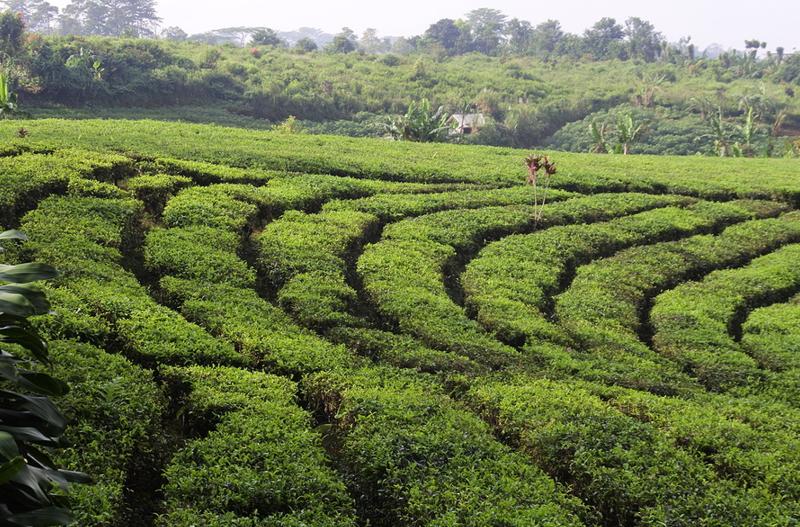Tea cultivation has always been tied to technology. Records show that humans have enjoyed tea as a daily drink since the early 3rd century. Back then, people used bamboo sieves to wither the leaves under direct sunlight and dried the leaves over large pans of fire.
Today, tea cultivation leans heavily on machines and computer programs. Continuous withering machines move the tea leaves through heated rooms on conveyor belts, and mechanized driers cool the withered leaves quickly to reduce loss of flavor and decrease processing times.
Modern, mechanized processes mean that we can all enjoy a brew at a low price. However, agri-tech could undergo a shake-up in pursuit of greater sustainability and an increased global demand for high-quality teas.
The State of Tea Today
The tea industry is booming. Despite a global economic downturn, the craft tea market is on track to reach a value of $465.3 million by 2030 as millions of people look for a better brew to start their day. Current predictions show that the commercial segment is due to outpace the individual consumer market, as more businesses find their way into the craft tea industry.
This is good news for everyone who works in the tea industry. A recent UN environment program report suggested that small-scale growers are set to benefit the most from the boom in craft teamaking, as previously overlooked growers are more likely to get the investment they need in a post-COVID world.
However, raising the global standard for tea production will require technological solutions. Previously exploited tea farmers don’t need our goodwill — they need investment and increased access to services and infrastructure.
This is where agri-tech steps in. Agri-tech solutions can be monitored remotely or on-site, and farmers can be trained to work alongside new technology that effectively leverages the power of the Internet of Things (IoT).

Smart Farming and the Tea Industry
Largescale tea production is already a highly mechanized industry. Aside from picking the leaves, most processes in tea production are completed by machines. Tea processing equipment rolls, withers, cuts, dries, ferments and packages everything from oolong to pu-erh.
Despite the heavy involvement of machinery, most tea factories aren’t yet considered “smart.” Smart technology incorporates artificial intelligence throughout the production process to aid farmers and improve factories' operational efficiency.
Smart farming is ushering in a new era of sustainable agriculture. Smart farms harness the IoT and use a range of sensors, software and geolocation services to add a layer of AI-led intelligence to the production process.
Smart farming is particularly useful in tea production. Like most crops, tea is grown outdoors and can be affected by seasonal fluctuations. These fluctuations could become more extreme as climate change worsens and places additional strain on tea fields.
Farms that use the IoT can get up-to-date readings of weather changes and soil quality. This means that farmers can access invaluable data in the blink of an eye, and make better-informed decisions thanks to a network of sensors and machines.
Smart farms are highly customizable, too. IoT technology is designed to be adaptable and can be used at almost any farm or factory. This gives farmers more authority over the decisions being made on their plots of land and ensures that smart farms are more reliable and resilient than traditional farming methods.
Smart farming is already being tested in tea farms across the world. The IoTea project in the Mengding Mountains uses tech to improve cultivation and increase resource efficiency.
The IoTea project specifically uses a network of sensors, gateways, cloud servers and data platforms to record and store pertinent data. This network of smart agri-tech gives farmers access to information like air temperature, soil humidity, light and CO2 levels. As well as improving operational efficiency, this data can be compared to historic data to help farmers see why, exactly, a certain crop excels or underperforms in any given year.
Vertical Farming and the Tea Industry
Tea is typically grown outdoors. However, recent innovations in vertical farming could possibly change that. Vertical farming leans on agri-tech technology – such as hydroponic equipment – and can be grown with low variability. This is ideal for mass-produced teas, as moving away from fields means that farmers no longer have to use pesticides to grow their crops.
However, tea farms that go vertical will need to be sanitized and kept free from bacteria and pests alike. Vertical farms can use cleanroom technology to replicate the same safety standards used in pharmaceutical production. This may be a more sustainable solution, too, as vertical farms no longer need to use carbon-intensive GMOs to produce the leaves we love.
Overall, tea farming has come a long way since the 3rd century. Today, modern machines can be paired with IoT technology to monitor and maintain farms and factories around the world. This can increase yields, reduce variability and improve the sustainability of the global tea industry.
Indiana Lee is a freelance writer and occasional contributor to World Tea News, with a wealth of experience in blogging, content marketing and journalism. She writes on a variety of topics across industries, including B2B issues and health and wellness.
Plan to Attend or Participate in the
World Tea Conference + Expo, March 27-29, 2023
To learn about other key developments, trends, issues, hot topics and products within the global tea community, plan to attend the World Tea Conference + Expo, March 27-29, 2023 in Las Vegas, co-located with Bar & Restaurant Expo. Visit WorldTeaExpo.com.
To book your sponsorship or exhibit space at the World Tea Conference + Expo, or to enquire about advertising and sponsorship opportunities at World Tea News, contact:
Ellainy Karaboitis-Christopoulos
Business Development Manager, Questex
Phone: +1-212-895-8493
Email: [email protected]
Also, be sure to stay connected with the World Tea Conference + Expo on social media for details and insights about the event. Follow us on Twitter, Facebook, Instagram and LinkedIn.
